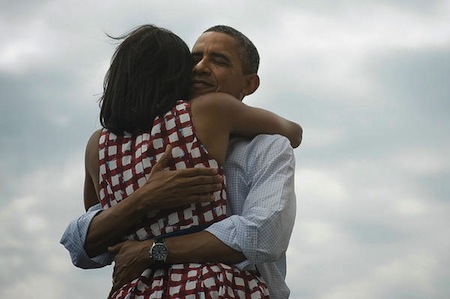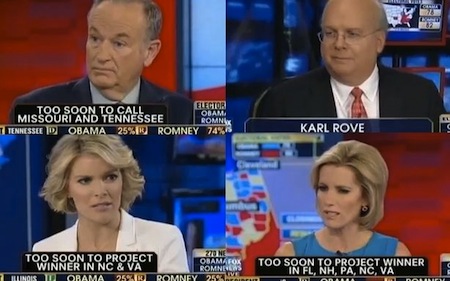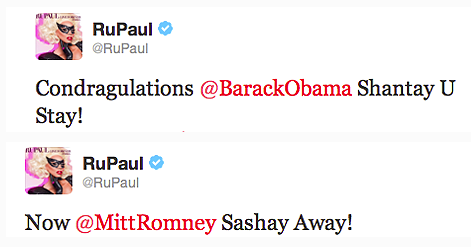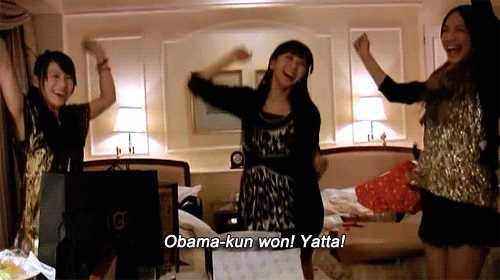It’s finally over. The campaigning, the news coverage, the ads.
Mostly I’m glad that Romney is over.
But the best part of today’s election isn’t the fact that Obama won. It’s how the internet decided to talk about it.
Let’s start with the media. Over at The Atlantic, they talked about how upon winning, Barack Obama’s photo tweet of “Four More Years” is now the most retweeted tweet of all time.

They also devoted an article to the facial expressions of the news crew on Fox News when they realized that Romney wasn’t going to win.

Speaking of Fox, Gawker took Bill O’Reilly to task for his comments during last night’s coverage on the news station, decrying that the reason Obama was gaining ground was because of America not being a “traditional America anymore” and saying that people “wanted things” and hinting that the people who “wanted things” were Latinos, African-Americans and women.
But it wasn’t the media who had the best things to say. It was places like Twitter and Tumblr that had the best commentary on the election.
RuPaul’s comments on the election, via Twitter:

People on Tumblr weren’t afraid to let their opinions of Romney be known:

Nor were they afraid to show GIFs of people exclaiming Obama’s victory:

There was even a lovely GIF of Obama voguing à la Willi Ninja.

Although at the end of the day, I think the entire election process can be summed up with this GIF:


 Why you can trust Xtra
Why you can trust Xtra


